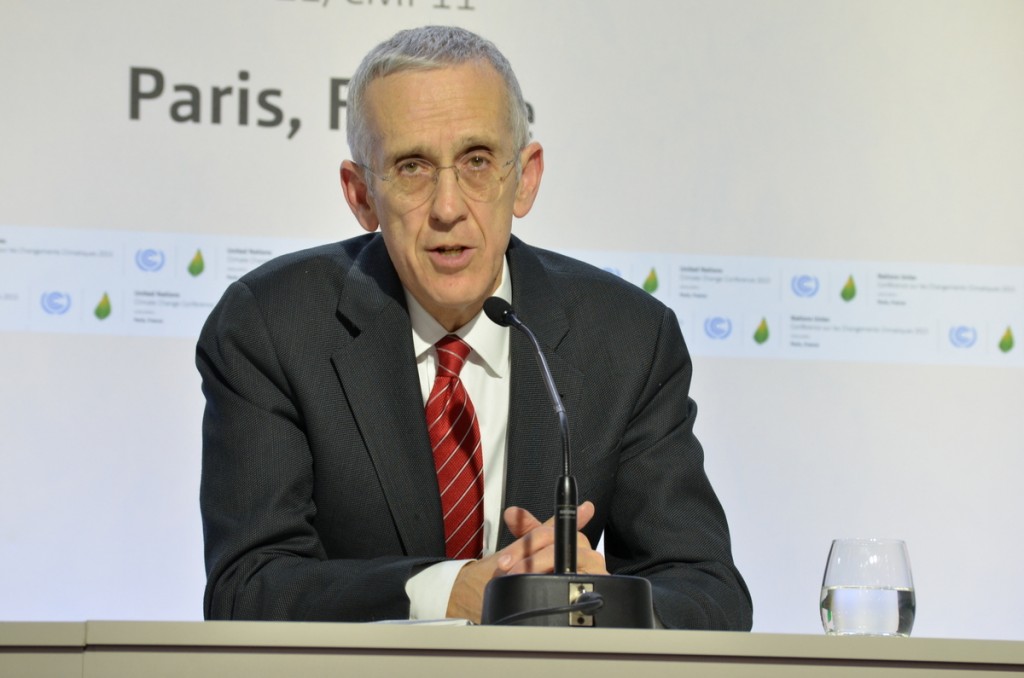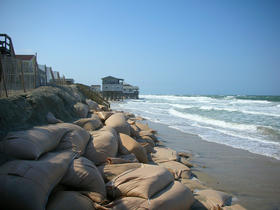
Todd Stern is President Obama’s top adviser on climate the and U.S.’s leadneogiator at COP21. Photo by Justin Catanoso.
Todd Stern has one difficult job. As President Obama’s top adviser on climate change, and the lead negotiator for the U.S. during the last seven UN climate summits, he is either marked as hero or villain, depending on what part of the world you’re from.
Yes, he represents the richest country on earth, one which could do more to alleviate the early ravages of climate changes in various parts of the globe. But it’s actually doing less than Norway. As a leader in the world’s lone superpower, he could exercise more influence on the proposed accord any time he chooses. But he knows that’s a sucker’s game, and never yields desirable outcomes.
Instead, Stern — even-tempered, soft-spoken, chummy with many long-time climate-change journalists — chooses to be clear, candid and concise. “Here’s what I can tell you; here’s what I can’t. Next question.”
Today he reminded the world’s media that the pledges of 196 countries to reduce their carbon emissions are just that — pledges, promises, not legally binding. Countries can renege, cheat or simply ignore what they said they would do. But for the world’s largest countries, the U.S. among them, transparency will be binding: strict inventories of emissions, clear reporting on actions, always open to outside review. The same strict rules will not, he said, apply to developing countries who simply don’t have the tools for such accounting. But they will be nudged in that direction, with great assistance.
Meanwhile, Stern said, there is no reason to think that an accord won’t be struck by weeks’ end, the first time in history that all the nation’s on earth will agree to reduce their carbon emissions to slow the rate of global warming. Here’s why he’s optimistic: “Worldwide buy-in is based on the notion that countries can make their own decisions.”
In a world that suffers gravely from a lack of trust, that notion of trust that Stern describes might just end up saving the planet in the long run.


